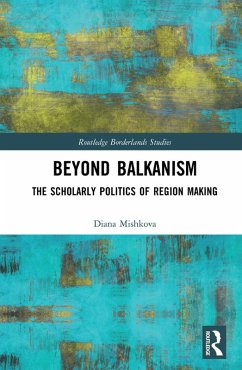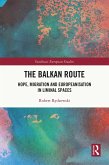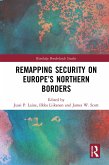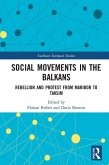The book unravels attempts at regional identity-building and construction of regional discourses across various generations and academic subcultures, with the aim of reconstructing the conceptualizations of the Balkans that have emerged from academically embedded discursive practices and political usages. It thus seeks to reinstate the subjectivity of "the Balkans" and the responsibility of the Balkan intellectual elites for the concept and the images it conveys. The book then looks beyond the Balkans, inviting us to rethink the relationship between national and transnational (self-)representation and the communication between local and exogenous - Western, Central and Eastern European - concepts and definitions more generally. It thus contributes to the ongoing debates related to the creation of space and historical regions, which feed into rethinking the premises of the "new area studies." Beyond Balkanism: The Scholarly Politics of Region Making will interest researchers and students of transnationalism, politics, historical geography, border and area studies.
Dieser Download kann aus rechtlichen Gründen nur mit Rechnungsadresse in A, B, BG, CY, CZ, D, DK, EW, E, FIN, F, GR, HR, H, IRL, I, LT, L, LR, M, NL, PL, P, R, S, SLO, SK ausgeliefert werden.
"The Balkans are crucial for an understanding of Europe's 20th century: at the beginning and at the end, the Balkans loom large in European history and provide key caesuras. Anyone wanting to understand 'Balkanism' and its manifold meanings over time, and anyone wishing to obtain a deeper understanding of how this region of Europe has been 'ticking', will have to read Diana Mishkova's entirely thrilling and path-breaking new book." -- Stefan Berger, Professor of Social History and Director of the Institute for Social Movements, Ruhr University Bochum, Germany
"...The book is aimed at researchers but can, by its method, be of interest to all those working on the implication of the sciences in the production of regions and "areas" or on the relations between the academic world and the political one. It [is] useful to all those who share the conviction that reflection on the boundaries of objects in the social sciences is a scientific, educational and ethical imperative." -- An excerpt from Svetlana Dimitrova in Lectures: An International Journal of Reviews in Social Sciences









